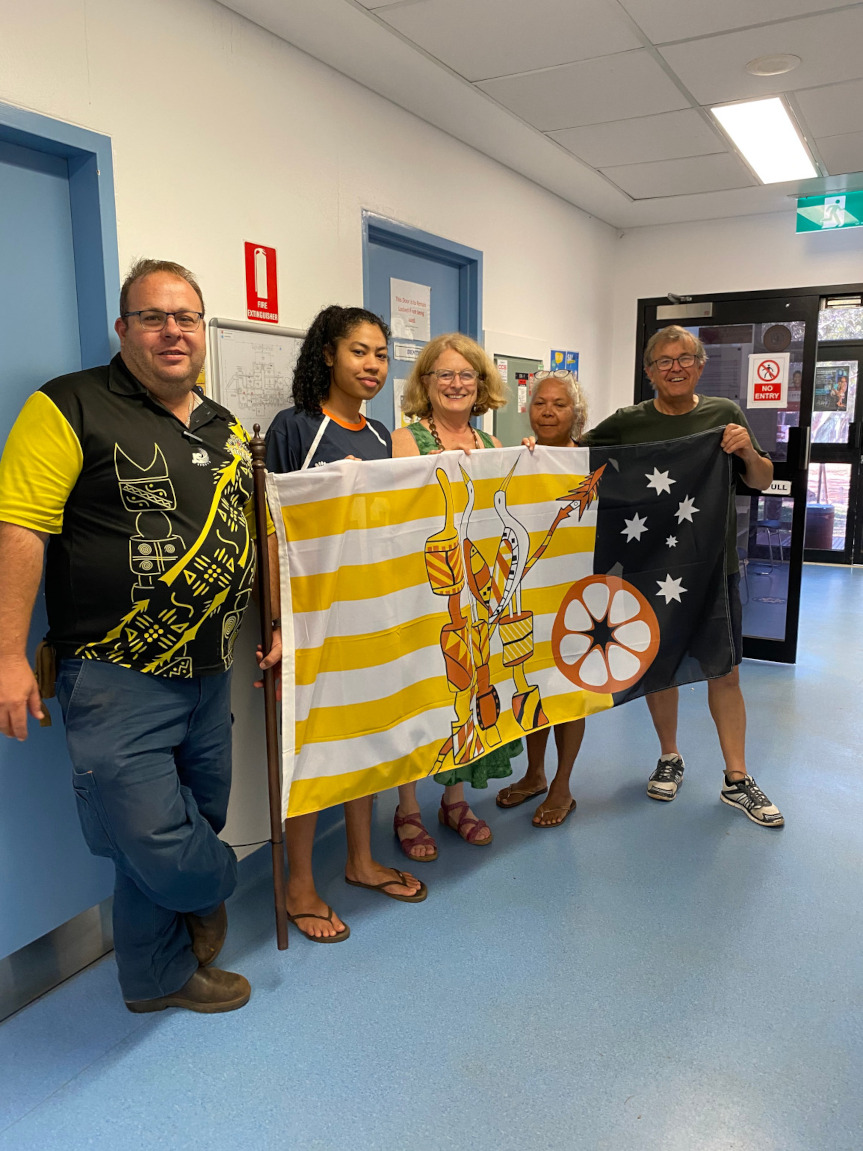Newsletter June 2021
 |
Newsletter June, 2021 |
Rare Clotting!Vaccine Induced Thrombotic Thrombocytopenia (VITT)
By Dr. Charmaine JonesFor people who have the opportunity to receive a viral vector vaccine and for people who may have a choice in vaccines. It can be confusing. I share this not to scare you off getting vaccinated. Not at all. CoVid is dangerous, and even 15% of mild cases are having long haul symptoms affecting multiple organ symptoms and proving to be long lasting implications. Should you get CoVid, the risk of life-threatening thrombosis from CoVid greatly exceeds the risk of VITT. I share this so that you have the knowledge to decide which vaccine is right for you and to advocate for yourself should you develop this rare complication of the viral vector vaccines. Always seek guidance from your Public Health team and your physicians. What is VITT? What is causing this concern?VITT is a rare clotting syndrome that may occur. It is rare. VITT is thought to occur around somewhere between 1 per 26,000 to 1 in 127,000 doses administered for AstraZeneca and 1 in 500,000 for the Janssen vaccine (see Table 1 from the Ontario Science Table brief issued May 11, 2021) There is not a large difference in rate for age or sex. It is NOT related to other clotting - such as that from BCP, family history of blood clots, etc. It is an entirely different mechanism. It is accompanied by low platelets. There are no identifiable risk factors. There hasn’t been any indication that I am aware of that those with an autoimmune disease are more susceptible. It occurs between day 4 and day 28 after the vaccine. The syndrome is due to autoantibodies directed against platelet factor 4 (PF4) that activate platelets. This releases clotting factors and destroys the platelets. Clots can occur in any blood vessel - artery or vein - and in multiple places simultaneously. Depending on where the clots are, the symptoms can vary. This is what you need to know: Should you develop symptoms (included but not limited to) clotting (thrombosis) or bleeding between days 4-28 after the vaccine
You need to seek medical help urgently. This is treatable but time is of the essence. You need a complete blood count done (CBC) as soon as possible and the results within the hour. If the platelets are low, you need to be seen at a hospital urgently. Our Canadian guidance as of May 2021 is as follows: For patients who may have the opportunity to receive a viral vector vaccine, the benefits of vaccination must outweigh the risks of VITT This may be the case if the person is at high risk of contracting COVID-19 due to their life circumstances and the rate of COVID-19 circulating in their community, at high risk of severe outcomes from COVID-19 due to their medical history and age, and if access to an mRNA vaccine is delayed. (click HERE to go to the site) As of May 3, 2021, NACI (National Advisory Committee on Immunization, Canada) preferentially recommends individuals be offered an mRNA vaccine. They state that a viral vector vaccine may be offered to individuals 30 years of age and older without contraindications, if the individual does not wish to wait for an mRNA vaccine and if the benefits outweigh the risk for the individual. I share this not to scare you off getting vaccinated. Not at all. CoVid is dangerous, and 15% of mild cases are having long haul symptoms affecting multiple organ symptoms and proving to be long lasting implications. Should you get CoVid, the risk of life-threatening thrombosis from CoVid greatly exceeds the risk of VITT. I share this so that you have the knowledge to decide which vaccine is right for you and to advocate for yourself should you develop this rare complication. Always seek guidance from your Public Health team and your physicians. Here are some excellent decision-making aids from the University of Waterloo, ON, Canada. Please download this document: it will be very helpful.
|
Helping Improve our First Australian's Health
l-r: Health Care Manager Andrew Urquhart, Tiwi’s Community Worker Helena Warria , DC’s Susan Hughes, Tiwi’s Admin/Reception, Kathy Clayton and DC’s Terry Jones DC has recently visited our Tiwi people to facilitate the production of their Medication Adherence video. The filming for this resource will include Tiwi talent in their own country and language to encourage taking their medicines, helping reduce their crippling muscular skeletal and auto-immune disease pain. Our First Australians are twice as likely to suffer with these crippling diseases than the national average. We were warmly received by Pirlangimipi’s health team – Northern Territory, Tiwi, Melville Island (these islands are located half-hour flight north of Darwin) The Hon. Ken Wyatt, Minister for Indigenous Australians recently wrote to Dragon Claw saying: “Muscular skeletal diseases are often debilitating, impacting on day-to-day activities and overall quality of life. Initiatives such as this arm Indigenous Australians with the knowledge that there are treatments available to manage their pain and condition more broadly”.
|
Special Announcement: Patients partnering to share their experience, information and hope
L-r – Dragon Claw/Arthritis Australia’s Patient Advisor, Jill Berensen with Jonathon Smithers CEO of Arthritis Australia and Susan Hughes, Director of Dragon Claw Charity. We are delighted to announce that Dragon Claw’s patient adviser and newsletter contributor on Covid vaccines, Retired Nurse of 40 years, Jill Berensen has recently been invited to join Arthritis Australia’s Consumer Advisory Panel (CAP). Jill said “Susan and I had a delicious lunch on Friday 21st May at the Hilton Sydney. It was on behalf of AIPS (Australian Institute of Policy & Science) and Janssen/J&J and highlighted Mark Butler, Shadow Minister for Health, in a post budget discussion of the future of Australian Health. Sitting between us was the CEO of Arthritis Australia, Jonathan Smithers, who warmly welcomed me to the Consumer Advisory Panel and was a witty and delightful lunch companion. It is with great excitement and humility that I look forward to working with the CAP Arthritis Australia, commencing in early June. I have learned a great deal since my diagnosis of RA in 2003, however, so much more in the 18 months since becoming a member of Dragon Claw and our weekly zoom Dragon Talks. I am hoping these experiences will be of use on the advisory panel as we help plot a better existence for all sufferers of musculoskeletal diseases in Australia. |
Sleep Hygiene - Book review by DC Patient Advisor Paul Kett
An interest in sleep and dreams which began for me as a final year university biology student was rekindled recently when I was introduced to the book entitled “Why We Sleep – Unlocking the Power of Sleep and Dreams” written by Matthew Walker, PhD. Walker, professor of neuroscience and psychology at UC Berkley (USA), is recognized for his extensive research into sleep. In this book he discusses this vast topic under four major topics: what sleep is; why we need to sleep; how and why we dream; and how society’s actions and lifestyles affect sleep for better and for worse. While he reviews most of the science behind sleep in the last 30 years, his references are more frequently anecdotal, than statistical, making for an understandable and fascinating read. Reading “Why We Sleep” introduced me to many new facts and ideas: for example, that there are times when my body is totally paralyzed; and that there are solid and provable reasons why teens’ waking and sleeping times are often very different from older adults, making “early-start” school times incompatible with sound learning habits. Perhaps more importantly for those with RA and other inflammatory conditions, this book may well help us understand why sleep is so important for us, and how we may improve our sleep patterns and effectiveness. Walker, Matthew, “Why We Sleep – Unlocking the Power of Sleep and Dreams.” 2017, Scribner, New York NY. Also recommended: Listen to/watch Matthew Walker’s podcast with Dr. Rangan Chattergee HERE |
Functional Nutritionby Charlotte Hill
Sleep is the lynchpin of health which holds everything together. It is a key focus of any client I work with whether they have an autoimmune condition or not. Adults should aim to get between 7 and 9 hours of sleep. Sleeping less than <6 hours per night increases risk of all cause mortality by 12%! Believe it or not, diet can have a significant impact on sleep and making a few simple changes can make a big difference. Here are my top recommendations:
|
Our Facebook has a new administratorSarah Loten
Do you regularly have your Dragon Claws into online Social Media?! With increasing use of social media, especially during this pandemic year, we want to increase our activity and communication on Facebook and Instagram. Did you know that we already have a Facebook page? Notices and Dragon Claw activities have been posted. We do not receive much traffic so we are meeting to increase the engagement level of our page. We want it be an interesting and encouraging place for Dragon Claw community members to go to! The 4 pillars of Dragon Claw are:
Watch for Dragon Claw Facebook/Instagram posts. Coming soon, to a screen near you!
Sarah Loten |
 |
Our tentative (always open to change!) schedule for DragonTalksJune/JulyPlease share with anyone with an autoimmune condition who might benefit from a safe space to share and learn. |
| June 8/9 | Sleep, part 2 (Denis) |
| June 15/16 | Dr. Paula Harvey: our cardiovaskular system risk (see bottom) |
| June 22/23 | Coffee time (no agenda) |
| June 29/30 | Annette's Story |
| July 6/7 | Common Threads in our stories |
| July 13/14 | Coffee time (no agenda) |
| July 20/21 | Art Therapy: a hands-on experience (Jan's d-in-law, Katrina) |
| July 27/28 | Finding meaning (Robin, Paul |
|
Dr. Paula Harvey will be joining us on June 15/16
This is very special: Please make every effort to attend! Dr. Paula Harvey is an Australian medical graduate. After completing her specialty training and subsequent PhD in 1999 she re-located to Canada as a NH&MRC Scholar to complete post-doctoral training in cardiovascular physiology at the University of Toronto. In 2002, Dr. Harvey was appointed to faculty in the Division of Cardiology, University Health Network. In 2010, Dr. Harvey joined Women's College Hospital (WCH) as director, Cardiovascular Research and subsequently also as Medical Director, Women’s Cardiovascular Health Initiative, the WCH cardiac rehabilitation program. In December 2013, Dr. Harvey was appointed division head, Cardiology, and most recently, in July 2014, interim Physician-in-Chief, Women's College Hospital. Dr. Harvey’s clinical and research focus is on cardiovascular disease in women across the lifespan, with a special interest in hypertension and atherosclerosis, cardiovascular disease prevention through lifestyle interventions (such as exercise) and cardiovascular disease in women with multiple complex diseases. Risk of cardiovascular disease in autoimmunity. |
|
| Please contact Charmaine Tuesdays North America 8 pm ET Wednesdays Australia 10 am AET |
|
Disclaimer: The Site and the content and services made available on the website are provided on an "as is" and "as available" basis. Dragon Claw does not make and disclaims all express and implied warranties and representations, including, but not limited to, any implied warranty of fitness for a particular purpose, with regard to the Site, the Site content, or any advice or services provided through the Site to the extent permitted by law. Dragon Claw does not warrant that access to the Site or its content or services will be uninterrupted or error-free or that defects in the Site will be corrected. The advice, recommendations, information, and conclusions posted or emailed by other members of the Site may not in any way be vetted, approved or endorsed by Dragon Claw, and you use such information at your own risk |
|








